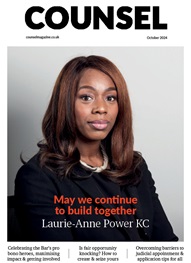*/
The prospect of the courts “calling into question” proceedings of Parliament despite Article IX of the Bill of Rights receded when the government’s hastily drafted Parliamentary Standards Bill received an early mauling.
Two clauses fell by the wayside. One would have required a Code of Conduct to incorporate “the Nolan principles”; whether it did could easily have become judicial reviewable but the government did not proceed with the clause.
Another clause would have allowed any evidence of proceedings in Parliament to be admissible in proceedings for an offence of providing information for the purposes of making a claim under the allowances scheme which the member knew to be false or misleading in a material respect. This would have included words spoken by MPs, evidence given by witnesses to committees and advice given by House officials. This was defeated despite a three-line whip.
The Clerk and Chief Executive of the House of Commons, Dr Malcolm Jack, gave evidence to the Justice Select Committee who were considering the Ministry’s assurance that the risk of disapplying some aspects of the Bill of Rights was low because the courts will show due defence to and concern for the issues about Parliament. How the government felt able to speak for what the judges would do in the future was not explained.
Dr Jack commented that it was also “low risk to drive up the motorway in the middle of the night on the wrong side of the road, but the impact would be enormous if you were involved in an accident”.
Article IX is the basis for privilege in all Commonwealth Parliaments. Australia had thought through the issue and produced a Parliamentary Privileges Act but this is not on the agenda in this country.
Two clauses fell by the wayside. One would have required a Code of Conduct to incorporate “the Nolan principles”; whether it did could easily have become judicial reviewable but the government did not proceed with the clause.
Another clause would have allowed any evidence of proceedings in Parliament to be admissible in proceedings for an offence of providing information for the purposes of making a claim under the allowances scheme which the member knew to be false or misleading in a material respect. This would have included words spoken by MPs, evidence given by witnesses to committees and advice given by House officials. This was defeated despite a three-line whip.
The Clerk and Chief Executive of the House of Commons, Dr Malcolm Jack, gave evidence to the Justice Select Committee who were considering the Ministry’s assurance that the risk of disapplying some aspects of the Bill of Rights was low because the courts will show due defence to and concern for the issues about Parliament. How the government felt able to speak for what the judges would do in the future was not explained.
Dr Jack commented that it was also “low risk to drive up the motorway in the middle of the night on the wrong side of the road, but the impact would be enormous if you were involved in an accident”.
Article IX is the basis for privilege in all Commonwealth Parliaments. Australia had thought through the issue and produced a Parliamentary Privileges Act but this is not on the agenda in this country.
The prospect of the courts “calling into question” proceedings of Parliament despite Article IX of the Bill of Rights receded when the government’s hastily drafted Parliamentary Standards Bill received an early mauling.


Our call for sufficient resources for the justice system and for the Bar to scrutinise the BSB’s latest consultation
Marie Law, Head of Toxicology at AlphaBiolabs, discusses alcohol testing for the Family Court
Louise Crush of Westgate Wealth explains how to make sure you are investing suitably, and in your long-term interests
In conversation with Matthew Bland, Lincoln’s Inn Library
Millicent Wild of 5 Essex Chambers describes her pupillage experience
Louise Crush of Westgate Wealth explores some key steps to take when starting out as a barrister in order to secure your financial future
From a traumatic formative education to exceptional criminal silk – Laurie-Anne Power KC talks about her path to the Bar, pursuit of equality and speaking out against discrimination (not just during Black History Month)
James Onalaja concludes his two-part opinion series
Expectations, experiences and survival tips – some of the things I wished I had known (or applied) when I was starting pupillage. By Chelsea Brooke-Ward
If you are in/about to start pupillage, you will soon be facing the pupillage stage assessment in professional ethics. Jane Hutton and Patrick Ryan outline exam format and tactics
In a two-part opinion series, James Onalaja considers the International Criminal Court Prosecutor’s requests for arrest warrants in the controversial Israel-Palestine situation